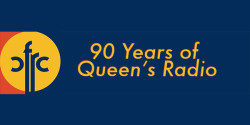Since my first post for the Radio Survivor Academic Series, the Radio Preservation Task Force has started to accumulate finding aids from regional archival collections. Just prior to the deadline for Research Associates to submit their finding aids to their Regional Directors, it was reported that approximately 250 archives and contacts had been aggregated, which surpassed the initial target goal of 200. In the East Region alone, an estimated 150,000 program transcriptions had been identified. The final tally of archives and findings will be circulated in December and posted to the new Radio History and Preservation Facebook group, of which I encourage readers to join.
These initial reports strongly suggest that the project will make a fantastic contribution to radio and media history and it will emphasize the importance of archives, libraries, and the hardworking people who maintain and uphold these collections.
During the final weeks of October I communicated regularly with a number of archivists in order to complete finding aids pertaining to their collections of radio and radio-related archival holdings. I was met with incredibly helpful and thorough accounts of local and educational radio histories in cities such as Kingston, Toronto, and London, Ontario. Through this process, however, I also discovered that many university archivists are short on time, resources, and support. I have been aware of some of the issues facing the National Archives in Canada through frequent reports in the press and through emails circulated on various listservs. Its challenges have included budget cuts, a freeze on purchasing acquisitions, and the elimination of interlibrary loans. One report from May 2012 cited a reduction of 20 percent of Library and Archives Canada’s workforce.
As I conversed with university archivists, it seems that in some cases at least, the issues are similar at the institutional level. Some archivists expressed that they were compiling a list of their radio archival holdings after work hours due to the regular demands of the work week. One archivist explained that it is typical of Canadian archives today to be operating with a very stretched budget and limited staff. Sound recordings were also often not as well cataloged or as organized as other holdings, unless there happened to be a particularly significant radio station or educational stream affiliated with the institution. I was told that many of the archival finding aids are spotty when it comes to describing sound recordings.
Historians, both in the academy and otherwise, rely on these materials and I feel that part of the goal of historical research is to stress the importance of archival collections of all scales and sizes. This is one reason in particular that I’m very hopeful for the RPTF project as it will help to locate and catalog sound recordings that perhaps have not yet been paired with a finding aid. In the coming weeks I’ll be speaking with a number of researchers and archivists affiliated with the project and I’ll be looking to get a sense of whether or not these issues are prevalent in other regions. To put this another way, to what extent is this an issue of government funding versus institutional funding and resources?
So, a huge thank you to all the archivists who devoted their time to provide me with completed finding aids. On that note, I’d like to briefly profile a few findings and initiatives that have caught my eye thus far.
A few highlights from the Clara Thomas Archives and Special Collections at York University in Toronto (provided by Anna St. Onge, the archivist responsible for digital projects and outreach) include the Michael Posluns fonds, which consist of over 400 audio reels and over 200 audio cassettes of radio programs related to First Nations, Métis, and Inuit current events broadcast on the Canadian Broadcasting Corporation and National Public Radio.
York also houses the Margaret Norquay fonds. Margaret was the founding director of CJRT-FM’s Open College program, which involved courses that were offered over radio in 1971. Margaret also worked with schools in Thailand to improve their media communications and educational initiatives. This collection includes radio scripts, oral histories, and audio cassettes from her work with Open College and her project in Thailand. There are a number of folk music recordings in the Mariposa Folk Foundation fonds, including radio broadcasts related to folk music for both Canadian and American audiences. Some items from this collection have been digitized as part of York’s Celebrating Canadian Folk Music project.
Queen’s University in Kingston, Ontario also holds an impressive collection of radio recordings. Queen’s has “one of the longest continuous histories in radio of any association in the world, besides the Marconi Companies.” The first demonstration of wireless telegraphy at the university was in 1902. Queen’s University Archives holds an extensive collection of records related to the university’s campus station, CFRC.
Public radio broadcasting from the campus began in the fall of 1922 on an experimental station 9BT and from 1923 onwards, on CFRC. Records include textual documents about the operation of the station and recordings of lectures, radio programs, and an oral history project about the radio station. Public Services Archivist Heather Home provided me with a completed finding aid as well as a number of documents providing additional information such as a list of technical artifacts like microphones and cables.
CFRC is currently featured as an online exhibit titled “90 Years of Queen’s Radio.” The exhibit “covers CFRC’s history from 1922 to today, with a focus on programming, equipment and photos from the early years.” It also includes a number of archival photos and audio clips that you can listen to as you explore the exhibit.
The online CFRC exhibit is a great example of what can result from combining radio archives with digital technology and the internet. It helps fill the need for early educational and local radio to maintain a presence within open and accessible online spaces.




